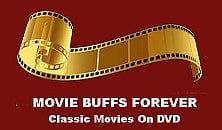Unscripted Movie Ad-Libs That Became Iconic – Part 2
Posted on 10 Jul 00:00

Ad-libs have proved effective in marketing movies. The films could have been played many years ago, or even a century ago, but the ad-libbed lines have seen them remain unique as if they were just shot yesterday. Ad-libs refer to the unscripted words a character speaks in a movie. The words are entirely improvised. Sometimes, even sounds are used as ad-libs if a character makes unscripted sounds. Ad-libs have contributed to the ranking of films, particularly those uttered by the starred characters in a movie. This article discusses some examples of films that became iconic because of their unscripted ad-libbed lines.
1. Ghost (1990)
When one hears Whoopi Goldberg’s ad-libbed line, "Molly, you in danger, girl," the famous 'Ghost' movie comes to mind. This is a 1990 romantic fantasy thriller. It revolves around the murder of Sam Wheat (Swayze) and how his ghost comes back to save his girlfriend Molly Jensen (Demi Moore) from his killer. Willie Lopez, a mugger, attacks banker Sam and Molly and shoots Sam to death. The ghost of Sam seeks out psych Oda Mae (Whoopi Goldberg) to warn Molly of her impending danger. Sam’s co-worker Carl works with Sam’s killer Willie, and it was Carl who sent Willie to kill Sam in pursuit of Sam’s apartment keys. With Oda Mae's help, Sam kills Willie and Carl, saves Molly, and recovers the lost money.
Director; Bruce Joel Rubin wrote the script that was directed by Jerry Zucker.
Cast; Patrick Swayze, Demi Moore and Whoopi Goldberg.
Awards; the film has received many awards since its production. At the 63rd Academy Awards, the movie was nominated for five awards and won two. It was nominated for Best Picture, Best Film Editing, and Best Original Score and won Best Supporting Actress (for Goldberg) and Best Original Screenplay.
Grossing; 'Ghost' stood out to be the third highest grossing film at the production time and the highest-grossing movie in 1990. From a budget of $22 milllion, it grossed $502 million.
The mention of Joe Pesci's ad-libbed line, "What do you mean funny? Funny how? … Funny like I'm a clown, I amuse you?" instantly brings to mind the movie, 'Goodfellas'. This is a biographical crime film adapted from Pileggi's 1985 nonfiction book 'Wiseguy'. A young man (Henry Hill) grows up in the mob and works very hard to advance himself through the ranks. He enjoys his life of money and luxury, but is oblivious to the horror that he causes. A drug addiction and a few mistakes ultimately unravel his climb to the top.
Director; Irwin Winkler produced the movie, and Martin Scorsese directed after writing it alongside Nicholas Pileggi.
Cast; Robert De Niro (Jimmy Conway), Ray Liotta (Henry Hill), Paul Sorvino (Paul Cicero), and Joe Pesci (Tommy Devito).
Awards; during the 47th Venice International Film Festival in 1990, Scorsese was named as the Best Director and was awarded a Silver Lion. The movie was nominated for six Academy Awards, including Best Picture and Best Director. Pesci emerged as the Best Supporting Actor. Additionally, Goodfellas won five awards from the British Academy of Film and Television Arts, including Best Film and Best Director.
3. Jaws (1975)
The Jaws is a 1995 American thriller is by the words "You're gonna need a bigger boat.” The movie is adapted from Peter Benchley's 1974 Jaws novel. The storyline is about the tribulation Scheider (Brody), Shaw (Quint), Dreyfuss (Hooper), and the town has to go through due to a man-eating shark. It begins with a young woman, Chrissie Watkins, is killed while skinny dipping at Amity Island's beach. When Brody suggests to Mayor Vaughn that the beach be closed following shark deaths, he declines the request. The situation deteriorates with more deaths occurring. A tiger shark is first found but has no human remains in the stomach, suggesting that it's not responsible for the people's demise. Brody, Quint, and Hooper continue with the search until Brody eventually harpoons the killer shark. Sadly, Quint is devoured by the shark before it is killed.
Director; Steven Spielberg directed the film. The script was written by Peter Benchley and Carl Gottlieb. David Brown and Richard Zanuck produced the movie.
Cast; Roy Scheider (Martin Brody), Robert Shaw (Quint), and Richard Dreyfuss (Matt Hooper).
Awards; In 2001, the Library of Congress deemed it culturally and aesthetically fit and chose it for preservation in the National Film Registry.
Michael McKean’s ad-libbed line, "It's such a fine line between stupid and clever," conjures up the movie, This Is Spinal Tap (1984) a mockumentary film. The movie is about an English rock group called Spinal Tap. McKean (David St. Hubbins), Guest (Nigel Tufnel), and Shearer (Derek Small) are its members and Reiner (Martin "Marty" Di Bergi) is the the filmmaker. One of the group’s albums, 'Smell the Glove' goes unsold by major retailers because of its sexist cover art and low ticket sales. The group restages the album with some modifications, but the band still flops. Ian Faith, the group's manager, quits the group when Jeanine, David's girlfriend, is appointed to co-manage the group. One of their albums, 'Sex Farm,' becomes a major hit in Japan. Ian returns with the good news, eventually reuniting with the group and managing it. Their albums finally pick up, and they get major performance gigs.
Director; Christopher Guest wrote the screenplay that was directed by Rob Reiner and produced by Karen Murphy.
Cast; the film stars are Christopher Guest, Harry Shearer, and Michael McKean.
Awards; in 2002, the Library of Congress considered This Is Spinal Tap to be ‘culturally, and aesthetically significant,’ thus selecting it for preservation in the National Film Registry.
When one hears Marlon Brando’s ad-libbed line, "You're an errand boy, sent by a grocery clerk.", the movie The Apocalypse Now (1979) film is called to mind. Itt is an epic psychological war movie based on the 1899 Joseph Conrad novella Heart of Darkness. Colonel Kurtz has gone insane and is issuing commands without any direction from his seniors. Captain Willard goes in pursuit of Colonel Kurtz. Captain Willard, after days of pursuing Kurtz, eventually kills him.
Director; Francis Coppola directed and produced the film. Together with John Milius, they wrote the film script .
Cast; the starring roles in the film are played by Marlon Brando (Colonel Kurtz), Robert Duvall (Colonel Bill), and Martin Sheen (Captain Willard).
Awards; 'Apocalypse Now' was honored with the Palme d'Or at the Cannes Film Festival. At the 52nd Academy Awards, 'Apocalypse Now' was nominated for eight awards. The nominations included Best Supporting Actor (Duvall), Best Picture, Best Director (Coppola), and won two awards for Best Sound and Best Cinematography.
The following Orson Welles’ ad-libbed line conjures 'The Third Man' (1949) film: "In Italy for 30 years under the Borgias, they had warfare, terror, murder, bloodshed. They produced Michelangelo, Leonardo da Vinci, and the Renaissance. In Switzerland, they had brotherly love, 500 years of democracy, and peace. And what did that produce? The cuckoo clock." The Third Man is a film noir was developed from Graham Greene’s novella of the same title. The storyline revolves around Harry Martins (Joseph Cotten) who comes to Vienna to find his childhood friend Harry Lime (Orson Welles), who has offered him a job, but un be known to Martins is a criminal. When he arrives, his friend, Lime, is supposedly dead. However, Martins realizes that Lime is alive. The dead man, is an orderly who had stolen Lime's penicillin. Martins and Lime meet, but Lime threatens Martins and reiterates the job offer before he quickly leaving. Later, Lime attempts to meet with Martin again. Police officers chase Lime through the sewers. He is shot and injured by Calloway, and Martins finally shoots and kills him.
Director; Carol Reed is The Third Man's director.
Cast; the starring actors in the film are Joseph Cotton (Holly Martins) and Orson Welles (Harry Lime)
Awards; In 2001, a team of 150 directors, actors, critics, and producers ranked it second on the best movies list.
7. The Silence of the Lambs (1991)
Often, sounds obliviously made by characters have been included in movies as unscripted ad-libs, making the films classic. For instance, Anthony Hopkins ad-libbed hissing sound "Hsssssss" has become a significant part of the 'The Silence of the Lambs'. This 1991 psychological horror film was developed from Thomas Harris’ 1988 novel of the same name. Jodie Foster (Clarice Starling) is sent to interview Anthony Hopkins (Dr. Lecter). His insight will help find a serial killer Buffalo Bill (Ted Levine). The information provided by Lecter quid pro quo helps Starling find both Buffalo Bill and Catherine, a senator's daughter that he has abducted. Buffalo tries to kill Starling, but she shoots him dead. Lecter kills his guards and escapes from the prison. Later, he calls Starling and demands that she returns the favor, but she says she cannot, at which he hangs up the call and seemingly goes to kill and devour another victim.
Director; Jonathan Demme directed the movie from a script written by Ted Tally.
Cast; Jodie Foster (Clarice Starling), Dr. Hannibal Lecter (Anthony Hopkins), and Ted Levine (Jame "Buffalo Bill" Gumb).
Awards; the Silence of Lambs won Five Academy Awards: Actor (Hopkins), Best Picture, Best, Best Actress (Foster), Best Director (Demme), and Best Adapted Screenplay (Ted Tally), making it one of three films to achieve that feat in history. At the 41st Berlin International Film Festival, Demme won the Silver Bear for Best Director. The movie is deemed 'culturally and historically significant. Consequently, it was chosen by the Library of Congress to be preserved in the National Film Registry.
Conclusion
Improvised lines in films have proved instrumental in marketing the movies. Some of the ad-libs are so influential that their slightest mention diverts full attention to the film in which they appear. I
Movie Buffs Forever stocks classic movies on DVD from the 1940's to the early 2000's. Browse our vast collection of old, rare and out of print classic movies on DVD.
YOU MAY ALSO LIKE:
Why We Still Love DVDs

